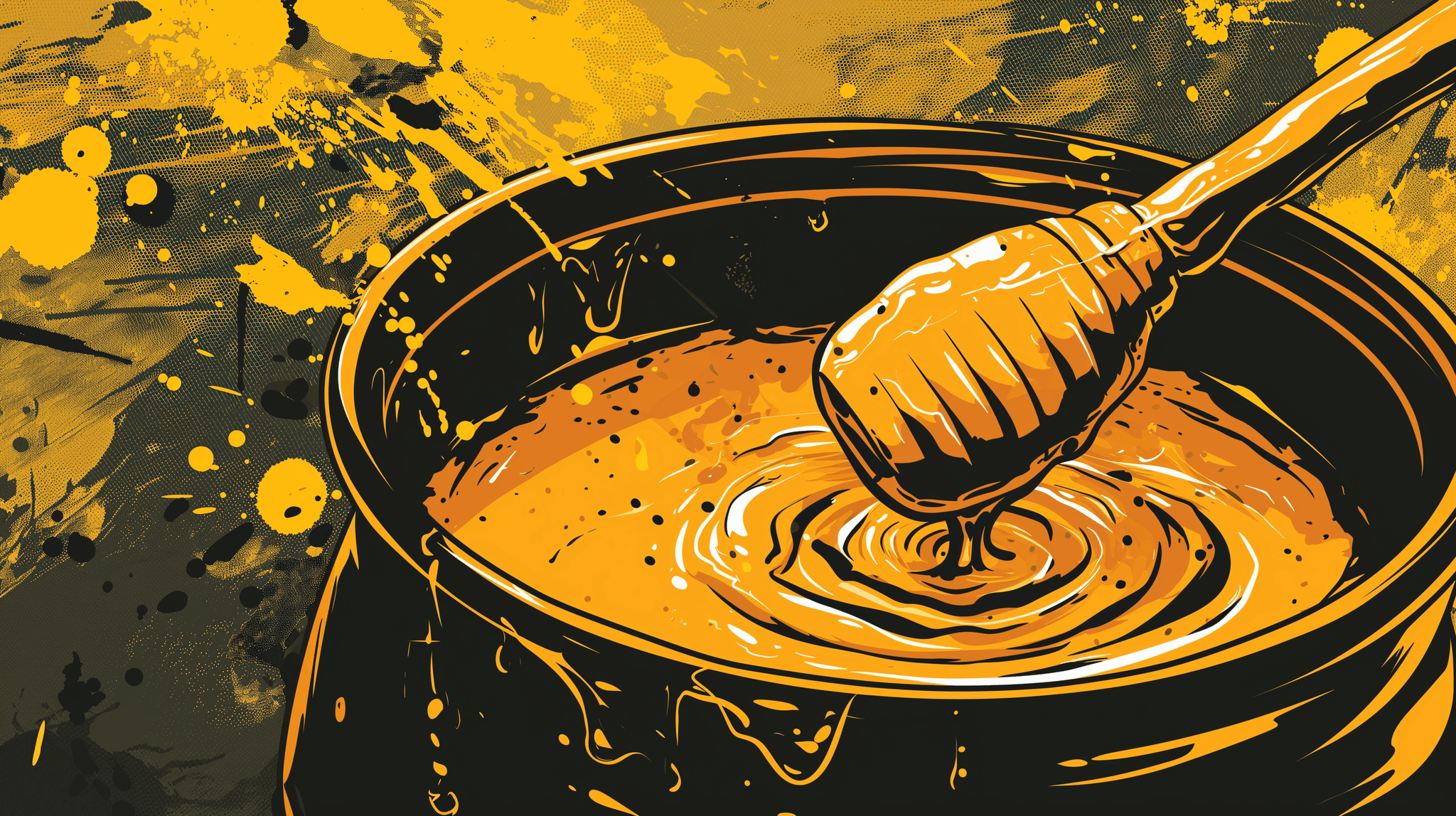Related
The Bazaar
Dive into my journey through the bustling marketplaces on the outskirts of Moscow in 'The Bazaar.' In this narrative, I reveal the vibrant world...
04 min reading in—Anecdotes
This is a story about one of the business people I interacted with in my early years as an SEO consultant and web developer. This anecdote captures the zeitgeist of the early 2000s in Moscow.

He was a prominent 'petty' businessman I met during those years. He operated a retail business selling honey. The natural honey that has to do with bees and flowers. This time, though, not only were the bees at work for this product to come to life.
He operated around forty compact stalls, each brimming with honey containers in a spectrum of hues. These stalls were located in a vast park area where he had established a strong rapport with the authorities, ensuring his operations went unquestioned. His sales team, primarily composed of women from Ukraine, dealt with a range of 'natural', 'organic' and 'locally sourced' products long before it became a thing.
Always on the hunt for new natural remedies to expand his product range, honey was soon joined by herbal syrups (some containing alcohol were discreetly sold) and an array of unusual items like natural 'male performance enhancers' and immune system support substances. The crowning glory of his product range was 300 ml glass bottles marketed as 'Bear fat' and 'Badger fat', whose origins remain a mystery. I guess that no bears and badgers were harmed during the production of the substance.
Most of his health-related products exploited the placebo effect, and for him, it was okay to sell the substance with some weird label if it promised swift relief and no side effects.
Now, back to the honey. Here, I will elaborate on how compromises were made in this early stage of the Russian market-oriented economy.
His original setup was like this: he met the beekeepers every late summer and acquired the honey. He was looking for some 'speciality' kinds of honey, like the one that happens naturally if the blooming flowers nearby are not mixed much, like in uniform maple or linden forest. Honey collected in places like that is significantly more expensive but could look and smell more or less like any other. There are ways to deal with honey, such as modifying its colour and consistency so that it's not always clear to the buyer if it's special or not.
His stands in the park were devoid of cash registers. This was his 'territory', and he managed to dodge taxes. His team of ladies selling honey and other remedies had to collect cash and record their sales in thick notebooks while playing fast and loose with the accounting. His audacity might amuse you, but that was more or less how most of the small business operated during those years.
When the inevitable happened, and the ladies began selling the cheap honey as the expensive variety, pocketing the difference, the honey salesman faced a turning point. Firing them was not an option, as most were guilty. So, he came up with a clever solution - he levelled the price of all types of honey, eliminating the incentive for his employees to manipulate the proceeds.
His creativity extended to his warehouse operations. When the previously expensive honey became relatively cheaper, demand skyrocketed. However, the profit margin disappeared as it was more expensive to acquire. So, he came up with a 'creative' solution: he mixed the pricier honey with cheaper varieties, along with some sugar or other unknown substances. The result? A unique blend of honey – perfectly coloured, honey-like in taste, encompassing twenty varieties at the same price!
So here's where I came to know this man: even though the anecdote draws a grim ethical picture, he was inclined to philosophise and embraced all the available new stuff. And he wanted to be 'good', acknowledging his shortcomings with mixing and flavouring. So, at first, he decided to let the customers order some elite kinds of honey delivered home (this honey was not available at his stands), and later, he decided to build an e-shop with my help so that the original, not mixed honey, was sold there.
This guy became my friend and mentor; at some point, I realised that he despised his grim reality of being a retail trickster as much as I despised mine being a webmaster for people like him. Eventually, he sold his properties and immigrated to Spain. He called me sometimes and bragged about the house he purchased in Tenerife, his decision to open up a carwash on the island and his advancements in Spanish. A few years ago, he died. He was in his fifties, dreaming about having so much good ahead.
His quest to pursue security, comfort and moral higher ground was over, but he could not reap the fruits. It appeared that it alone could not breathe life into his days. Instead, the pursuit of goals, the thrill of the chase, and the joy of aspiring towards something far away kept his spirit alive.
In his story lies a quiet reminder: true contentment comes not from the comforts we gather but from the dreams we chase and the challenges we meet along the way. It's in our pursuit of something greater, no matter how small, that we truly find life's richness.
This is a part of my Crazy CV series. If you like to read similar stories, please check it out!
Related
Dive into my journey through the bustling marketplaces on the outskirts of Moscow in 'The Bazaar.' In this narrative, I reveal the vibrant world...
Related
Years active: 2005 - 2011. Role description: Co-founder of an innovative e-commerce venture specialising in fashion retail.
Related
Years active: 2002 - 2007. Role description: Freelance web development and SEO consulting